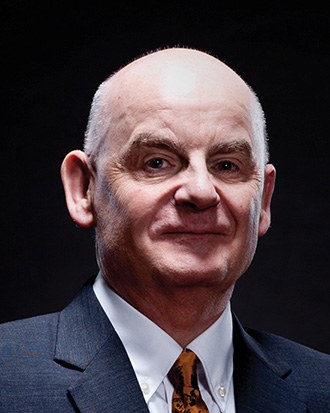Barry Halliwell, Ph.D., Senior Advisor to the President, and Tan Chin Tuan Centennial Professor, National University of Singapore.

Dr. Barry Halliwell
Professor Barry Halliwell is Tan Chin Tuan Centennial Professor at the National University of Singapore. An internationally-acclaimed biochemist, Professor Halliwell is known for his seminal work on the role of free radicals and antioxidants in biological systems. The Thomson Reuters lists Professor Halliwell as one of the world's most highly-cited researchers in Neurobiology & Behaviour, Pharmacology & Toxicology, Biology and Biochemistry. His Hirsch Index is 146. His book Free Radicals in Biology and Medicine is regarded as the authoritative text in the field with its fifth edition published in 2015.
His research focuses on the role of free radicals and antioxidants in human disease, particularly Alzheimer disease and other brain disorders, such as strokes, and in the ageing process. His interest in identifying important antioxidants in the human diet and in developing novel antioxidants has critical bearing on treating human diseases and understanding how diet might cause or prevent them.
Abstract
The Benefits of Antioxidants, Fact or Fiction?
Oxygen free radicals and related "reactive oxygen species" are fundamental to survival; they help drive evolution yet the damage that they can do ("oxidative damage") is involved in most, if not all, human diseases and in ageing itself. The fact that reactive oxygen species cause such harm whilst playing important pathophysiological roles can be explained by Darwinian Medicine.
Early work by my group helped elucidate the key roles played by transition metals (especially iron) in oxidative damage as well as the pathway used by plants to remove H2O2 (the ascorbate-glutathione cycle). Plants are key to human life; they supply us with oxygen, they provide a variety of nutrients with antioxidant abilities, and diets rich in plants lower the risk of developing many diseases, including diabetes, atherosclerosis, dementias and stroke. Exactly why is uncertain.
The reasons for the general lack of effectiveness of such "classical" antioxidant supplements as ascorbate, vitamin E and β-carotene in decreasing risk or severity of human disease in intervention studies will be discussed. One explanation is that antioxidants are often ineffective in decreasing levels of oxidative damage in humans. These antioxidants work better in cell culture and in rodent models (which questions the relevance of some mouse models of human disease, and cell culture studies can generate many artefacts). So how then can we minimize oxidative damage in the human body? Strategies will be discussed. Studies on lifespan and healthspan using C.elegans as a model will also be presented.
Much of our research now focuses on ergothioneine, a diet-derived antioxidant that is avidly retained by the human body and particularly accumulated at sites of tissue injury, where it may help to diminish tissue damage.
We have conducted a detailed study of how ergothioneine behaves when administered to humans. Ergothioneine is made by fungi and some bacteria, although the list of these able to make it grows daily.
References:
Halliwell B and Gutteridge JMC. (2015) Free Radicals in Biology and Medicine. Clarendon Press, Oxford (fifth edition), UK.

